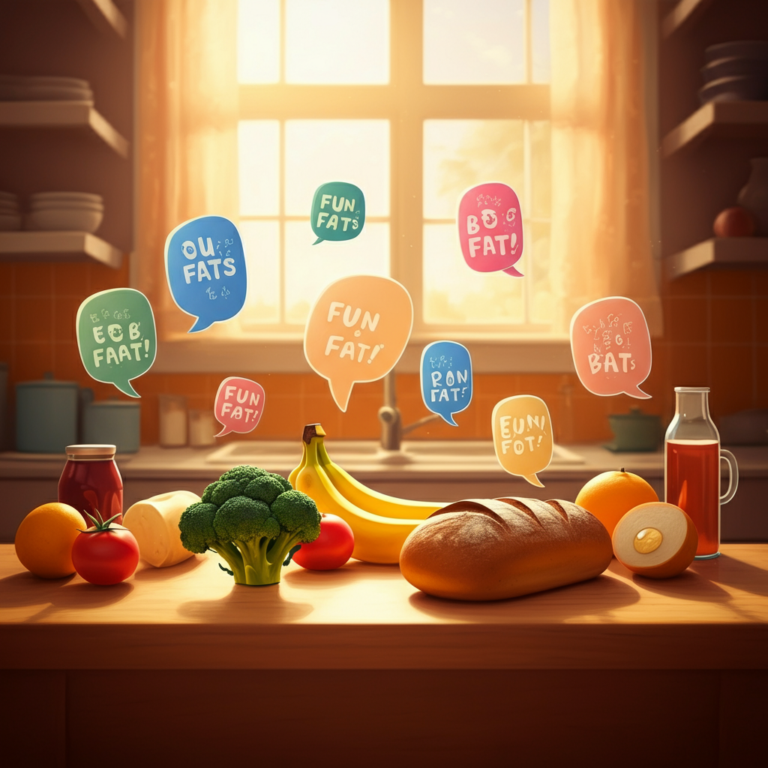Food is a universal necessity and a source of joy for people worldwide. Yet, there’s so much about everyday foods that remains a mystery. From fascinating origins to surprising properties, the foods we eat hold stories that go beyond their flavors.
Whether you’re a food lover seeking trivia or someone who enjoys sharing quirky facts at dinner parties, this post will uncover ten fun facts about foods you likely consume daily. Let’s dig in!
1. Bananas Are Technically Berries (but Strawberries Aren’t)
Most people would never think of a banana as a berry, but botanically speaking, it is. A berry is defined as a fleshy fruit produced from a single ovary containing seeds embedded in the pulp. Bananas check all these boxes.
On the other hand, strawberries don’t qualify as berries since their seeds are on the outside, instead of being enclosed within the fruit. This scientific twist makes for an interesting conversation starter, doesn’t it?
2. Honey Never Spoils
Honey is one of the rare foods with an almost infinite shelf life. Archaeologists have even discovered edible honey in ancient Egyptian tombs over 3,000 years old! Its longevity is thanks to its low water content, high acidity, and the presence of natural enzymes that create hydrogen peroxide, making it hard for bacteria to survive.
Next time you use honey in your tea or drizzle it over pancakes, remember—you’re enjoying something timeless.
3. Apples Float Because They’re 25% Air
Ever noticed how apples bob in water? That’s because they contain about 25% air by volume. The air pockets within the apple’s cells give the fruit its buoyancy. This unique characteristic is why apple bobbing became a popular Halloween game, and it’s also what keeps your snack crisp and juicy.
4. Carrots Were Originally Purple
Before the common orange carrot became the norm, carrots were primarily purple or yellow. The orange variety we know today was developed by Dutch growers in the 17th century as a tribute to William of Orange, a central figure in Dutch independence.
That vibrant orange you see at grocery stores wasn’t always the default color!
5. Potatoes Were the First Food Grown in Space
Potatoes paved the way for humanity’s agricultural endeavors beyond Earth. NASA and the University of Wisconsin successfully cultivated potatoes aboard the Space Shuttle Columbia in 1995. This milestone highlighted the potential for growing sustainable crops in space to support astronauts on long missions.
The next time you munch on fries, think about their interstellar potential!
6. Peanuts Are Not Nuts
Though we casually call them “nuts,” peanuts are legumes, meaning they belong to the same family as beans and lentils. True nuts, like almonds and walnuts, grow on trees, whereas peanuts grow underground in pods—a trait that earns them their classification as legumes.
This subtle distinction is worth noting, especially if you’re a fan of peanut butter sandwiches!
7. Chocolate Contains a Small Amount of Caffeine
If you’ve felt a slight energy boost after having a piece of chocolate, you’re not imagining it. Chocolate, particularly dark chocolate, contains a small amount of caffeine—around 20 milligrams per ounce. While it’s nowhere near the amount found in coffee, it’s enough to provide a gentle pick-me-up.
Combine this with the mood-enhancing effects of its theobromine content, and it’s clear why chocolate is such a beloved treat.
8. Cheese Is the Most Stolen Food Item in the World
It may sound surprising, but cheese is the most shoplifted food globally, with around 4% of all cheese disappearing from stores yearly. Experts attribute this to its high value, versatility, and demand. Its status as a commonly stolen item even landed it the nickname “liquid gold.”
Whether it’s cheddar, gouda, or mozzarella, cheese clearly has universal appeal.
9. Rice Feeds Over Half the World’s Population
Rice is more than just a staple in many cuisines; it’s also the primary energy source for more than half the global population, especially in Asia. Each year, people consume over 500 million metric tons of rice, highlighting its importance in combating global hunger.
When you enjoy sushi or a side of fried rice, you’re partaking in one of humanity’s most essential and enduring food traditions.
10. Broccoli is a “Man-Made” Vegetable
Broccoli didn’t always grow in nature. It’s a cultivated crop engineered from the wild cabbage plant around the 6th century by breeding its flowering heads. Along with other vegetables like cauliflower and kale, broccoli owes its existence to agricultural innovation.
Packed with vitamins and antioxidants, broccoli’s human-made origin doesn’t make it any less of a nutritional powerhouse.
What These Facts Reveal About Food
The foods we eat daily are more than just sources of nutrition—they carry histories, quirks, and secrets that make them fascinating. From food that floats to vegetables crafted by human ingenuity, these stories remind us how deeply connected we are to what we consume.
Each bite holds a tale of nature, culture, or science, enriching our dining experiences in ways we often overlook. Next time you pick up an apple or spread some peanut butter, take a moment to appreciate the wonder hiding in plain sight.
Food Knowledge Is as Satisfying as the Food Itself
Curious to learn more about the everyday foods you love? Stay tuned for more intriguing food insights, tips, and stories on [Your Blog Name]. Share your favorite fun fact from this list—or a new one you know—in the comments below!
And don’t forget to explore our weekly recipe updates and curated food stories to enrich both your table and your mind.





















One Comment